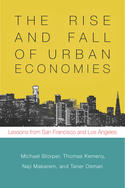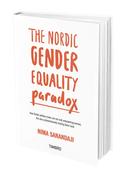Book Review: "The Rise and Fall of Urban Economies: Lessons from San Francisco and Los Angeles." Michael Storper, Thomas Kemeny, Naji P. Makarem and Taner Osman; Stanford University Press, 2015.
How and why do places differ in their pace of economic development? Why do some flourish while others lag? These are among the most profound questions in economics and related fields. Are explanations found in geography, culture, institutions, or fortune? read more »




















